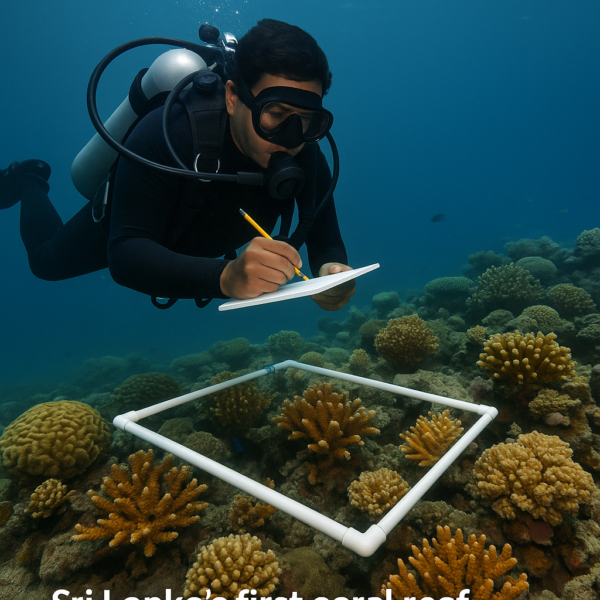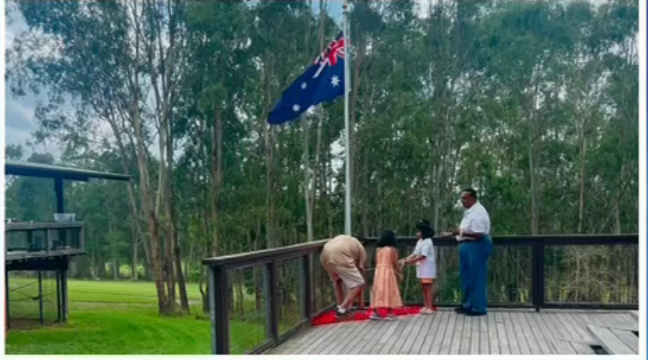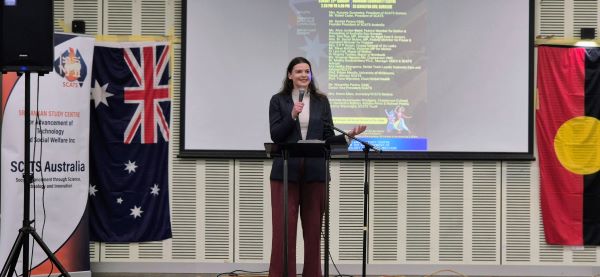Sri Lanka’s first coral reef protection project in Hambantota Port – By Arundathie Abeysinghe

 Hambantota International Port Group (HIPG), aligned with its Corporate Social Responsibility (CSR) vision, recently launched its inaugural Coral Reef Protection Project, the first of its kind in a Sri Lankan port. Several thriving coral colonies have developed within the port’s channel and basin. Eco-conscious policies adopted by the port have created a sanctuary for the natural growth of diverse species of coral along the port’s breakwaters and on the artificial island. Hence, several coral species are thriving undisturbed adjacent to HIP breakwater.
Hambantota International Port Group (HIPG), aligned with its Corporate Social Responsibility (CSR) vision, recently launched its inaugural Coral Reef Protection Project, the first of its kind in a Sri Lankan port. Several thriving coral colonies have developed within the port’s channel and basin. Eco-conscious policies adopted by the port have created a sanctuary for the natural growth of diverse species of coral along the port’s breakwaters and on the artificial island. Hence, several coral species are thriving undisturbed adjacent to HIP breakwater.
The project is an extension of HIPG’s green port concept, a collaboration with the Ocean University of Sri Lanka (OCUSL), designed to minimize the port’s ecological footprint, while striking a balance between industrial activity and environmental preservation.
As the port is a high security zone, which limits human interference from tourism and fishing, it has inadvertently transformed its artificial structures into ideal substrates for coral larvae settlement. This has led to the development of thriving coral reefs in a semi-artificial, protected environment.
The port has allocated an initial sum of Rs. 1.2 million for the first phase of the project, which is expected to be completed by May 2025.
This project originates from the ecosystem nurtured by Hambantota International Port. Several thriving coral colonies have developed within the port’s channel and basin. Recently, HIPG decided to investigate the phenomenon scientifically. Caring for the Planet is a fundamental aspect of HIPG’s Environmental, Social, and Governance (ESG) framework. This vision is a policy and goal set by CM Port, parent company of HIPG with the objective of aligning with the United Nations Sustainable Development Goals (2030 Agenda for Sustainable Development, adopted by all United Nations Member States, in 2015).
The key objective of this project is to focus on conducting a comprehensive baseline study to assess coral cover, species diversity, and the presence of diverse marine organisms, such as fish, invertebrates as well as algae. The research will also focus on evaluating sea water quality, and macroalgae growth with the ultimate goal of assessing the health of coral ecosystems and their potential as models for future conservation and restoration efforts.
This project will focus on the monitoring efforts and conducting research during the next five months. The study will also focus on evaluating sea water quality, and macroalgae growth, assessing the health of coral ecosystems and their potential as models for future conservation and restoration efforts.
This project will be invaluable in shaping sustainable practices not only in Sri Lanka, but worldwide. It will be a significant environmental initiative and an excellent opportunity for education and research and will provide undergraduates with hands-on experience in marine biology and marine conservation, allowing them to participate in fieldwork and data analysis which will enhance their practical skills, while contributing to cutting-edge marine research.




















